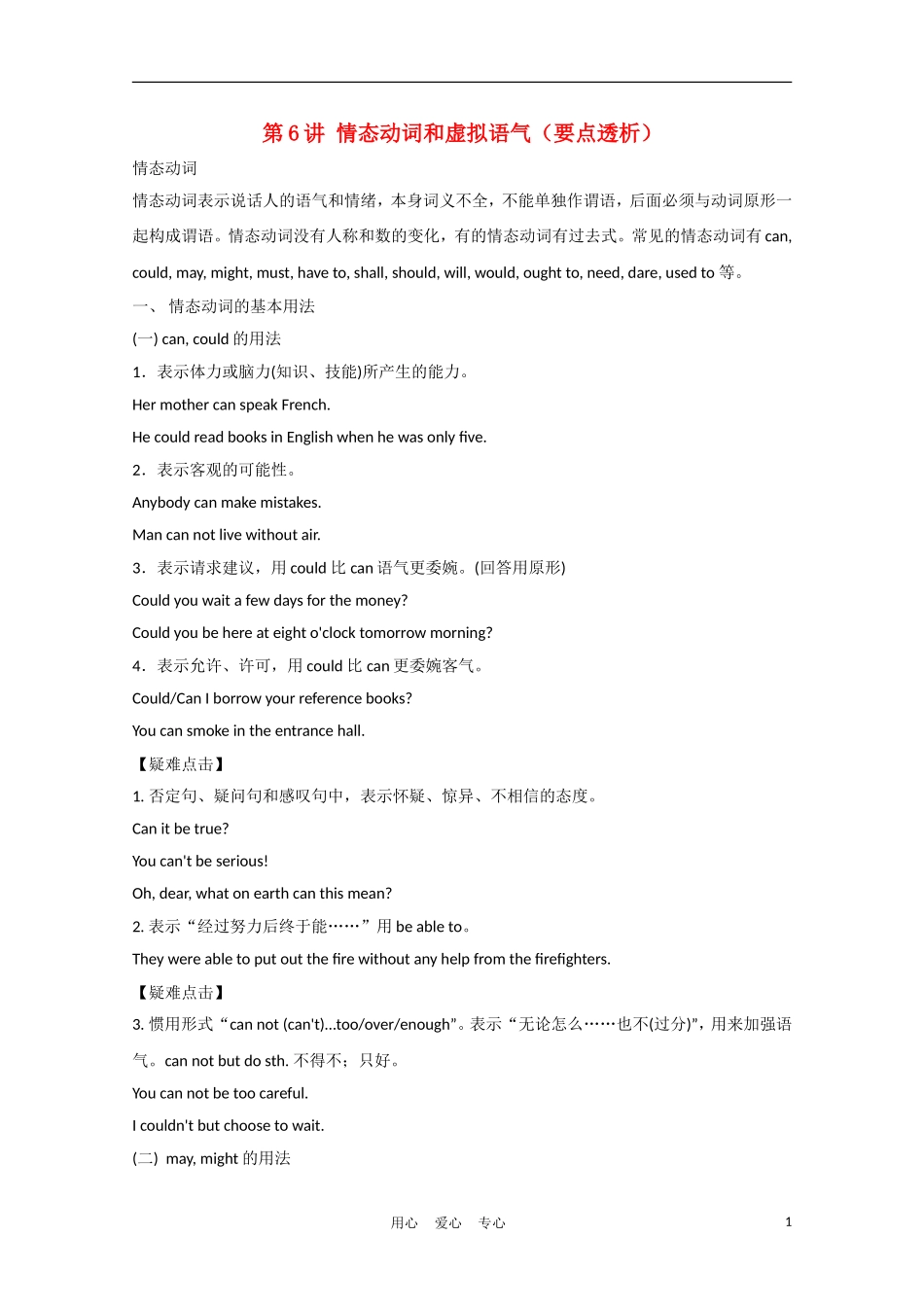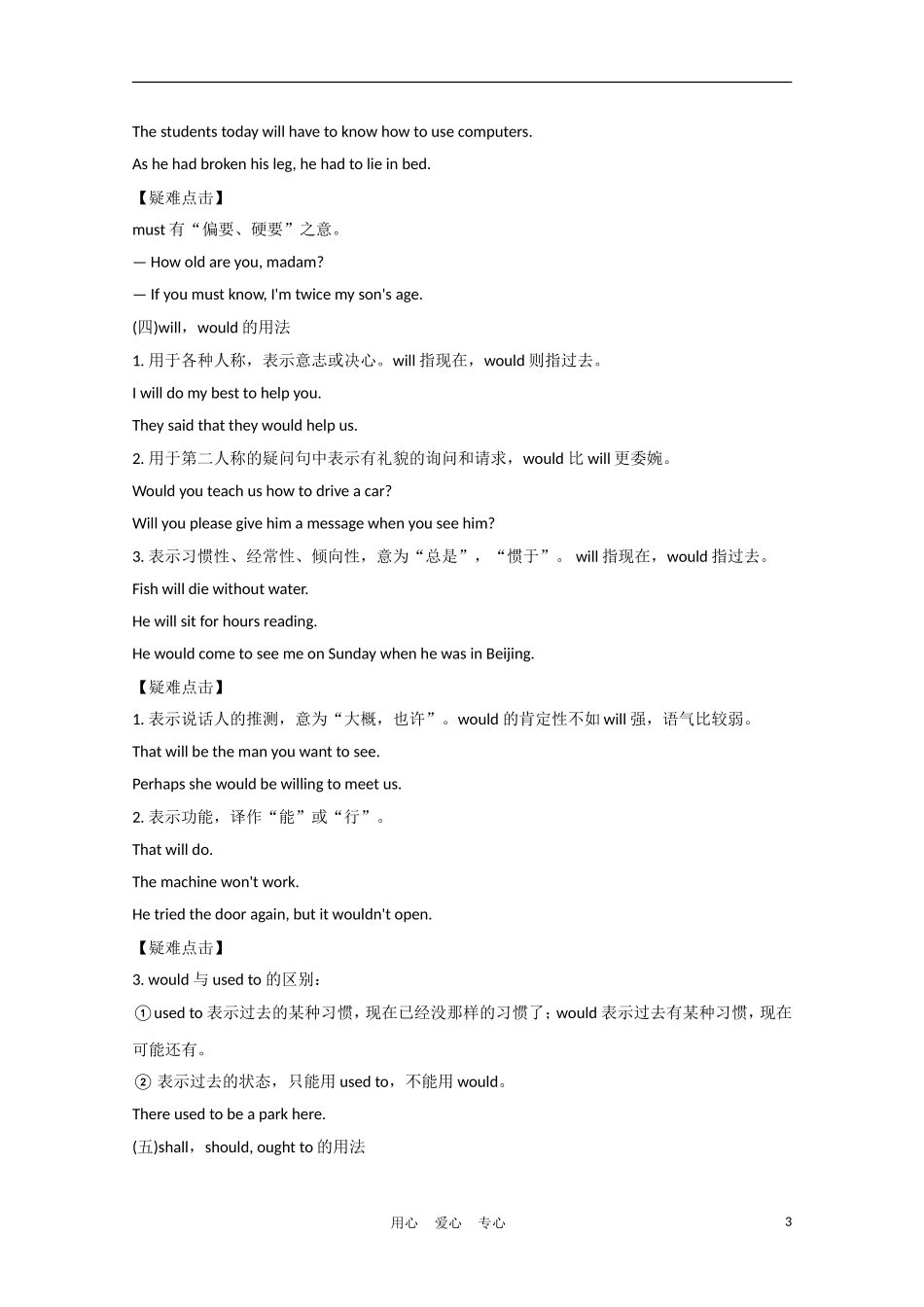第 6 讲 情态动词和虚拟语气(要点透析)情态动词情态动词表示说话人的语气和情绪,本身词义不全,不能单独作谓语,后面必须与动词原形一起构成谓语。情态动词没有人称和数的变化,有的情态动词有过去式。常见的情态动词有 can, could, may, might, must, have to, shall, should, will, would, ought to, need, dare, used to 等。一、 情态动词的基本用法(一) can, could 的用法1.表示体力或脑力(知识、技能)所产生的能力。Her mother can speak French.He could read books in English when he was only five.2.表示客观的可能性。Anybody can make mistakes.Man can not live without air.3.表示请求建议,用 could 比 can 语气更委婉。(回答用原形)Could you wait a few days for the money?Could you be here at eight o'clock tomorrow morning?4.表示允许、许可,用 could 比 can 更委婉客气。Could/Can I borrow your reference books?You can smoke in the entrance hall.【疑难点击】1. 否定句、疑问句和感叹句中,表示怀疑、惊异、不相信的态度。Can it be true?You can't be serious!Oh, dear, what on earth can this mean?2. 表示“经过努力后终于能……”用 be able to。They were able to put out the fire without any help from the firefighters.【疑难点击】3. 惯用形式“can not (can't)…too/over/enough”。表示“无论怎么……也不(过分)”,用来加强语气。can not but do sth. 不得不;只好。You can not be too careful.I couldn't but choose to wait.(二) may, might 的用法用心 爱心 专心11. 表示允许、请求。Might I…? 比 May I…? 语气更为委婉和有礼貌。— May I ask you a question?— Yes, please.— May I watch TV after supper?— Yes, you may.或 No, you may not/ You'd better not./ You mustn't.(强烈的禁止语气)2. 表示可能性,表示“或许”,“大概”。用于肯定句或否定句中,用 might 比 may 语气更加不肯定。He may be very busy these days.He might come tomorrow.【疑难点击】1. may, might 用于目的状语从句中,含“为了……”或“以便……”之意。Study hard that you may work bet...


